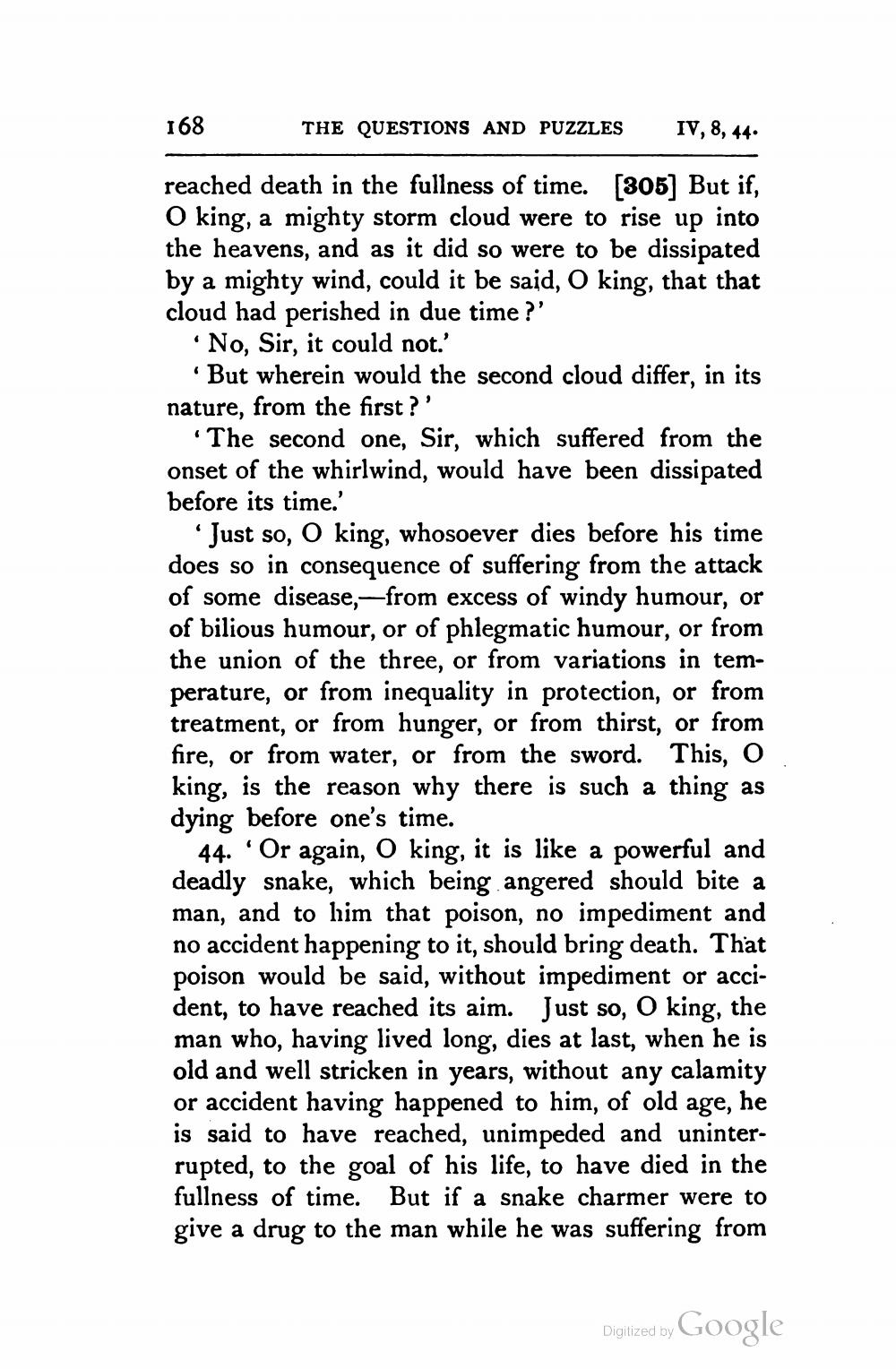________________
168
THE QUESTIONS AND PUZZLES
IV, 8, 44.
reached death in the fullness of time. [305] But if, O king, a mighty storm cloud were to rise up into the heavens, and as it did so were to be dissipated by a mighty wind, could it be said, O king, that that cloud had perished in due time?'
No, Sir, it could not.' * But wherein would the second cloud differ, in its nature, from the first ?'.
The second one, Sir, which suffered from the onset of the whirlwind, would have been dissipated before its time.'
Just so, O king, whosoever dies before his time does so in consequence of suffering from the attack of some disease,—from excess of windy humour, or of bilious humour, or of phlegmatic humour, or from the union of the three, or from variations in temperature, or from inequality in protection, or from treatment, or from hunger, or from thirst, or from fire, or from water, or from the sword. This, o king, is the reason why there is such a thing as dying before one's time.
44. 'Or again, O king, it is like a powerful and deadly snake, which being angered should bite a man, and to him that poison, no impediment and no accident happening to it, should bring death. That poison would be said, without impediment or accident, to have reached its aim. Just so, O king, the man who, having lived long, dies at last, when he is old and well stricken in years, without any calamity or accident having happened to him, of old age, he is said to have reached, unimpeded and uninterrupted, to the goal of his life, to have died in the fullness of time. But if a snake charmer were to give a drug to the man while he was suffering from
Digitized by Google




